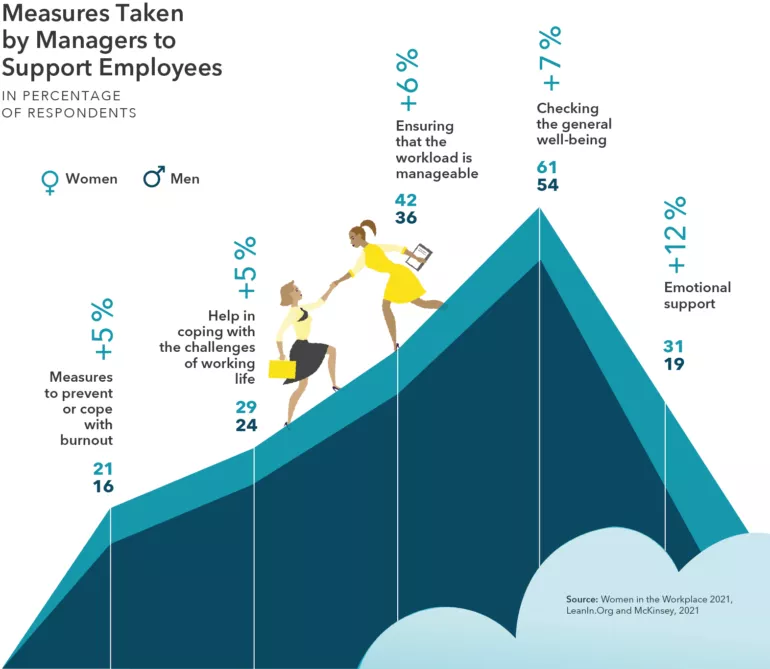News & Trends
Women Are “Better” Bosses

Put Aside Outdated Stereotypes
Women are taking over one “male bastion” after another. They are only still underrepresented in the big corporate world. Which is a big mistake: as during the pandemic, women proved to be the “better” bosses.
Twitter is used to present issues that are important to you and to reach people. This is what Christina Neuhaus did recently when she addressed the community with an impressive appeal: “Dear people, please be sparing with the supposed praise of ‘strong and smart women’.” Anyone who does this, according to the political journalist, is unintentionally pandering to images from times past. Back then, women were not infrequently portrayed as the “weaker and less bright” sex. That is why she is demanding: “It is time to stop the nonsense.”
The Imbalance Is Levelling Out
This same Christina Neuhaus is head of home news at the Neue Zürcher Zeitung newspaper. So she has one of the most important jobs in an industry that has a reputation of being a male domain. Or rather: to having been. Because the home news editorial offices at the four largest Swiss media houses are now run by women. Political reporting in Switzerland is therefore firmly in women’s hands.
Women also have great influence in the parliament in Bern. Since the last elections, the share of women in the National Council has been 42 percent – higher than ever before. In the Social Democratic Party and Green Party parliamentary groups, the female share is as high as 60 percent. In the world of big business, on the other hand, women’s breakthrough is still faltering somewhat. A study by McKinsey shows that although women in the USA have made significant gains at all hierarchical levels in recent years, there is still room for improvement.
Women Impress With Their Leadership Qualities
Women are excellent managers – not least as the coronavirus pandemic has shown us. According to a McKinsey survey, female bosses took better care of their employees than their male colleagues. The differences are striking: 31 percent of employees whose teams were led by women felt emotionally supported. Whereas the rate for male managers was 19 percent. Women also scored better on burnout prevention or work-life balance issues. Overall, a characteristic female leadership style leads to less stressed, more balanced employees who are demonstrably less likely to quit. Women have particularly impressed with their leadership qualities in the last few turbulent months.









